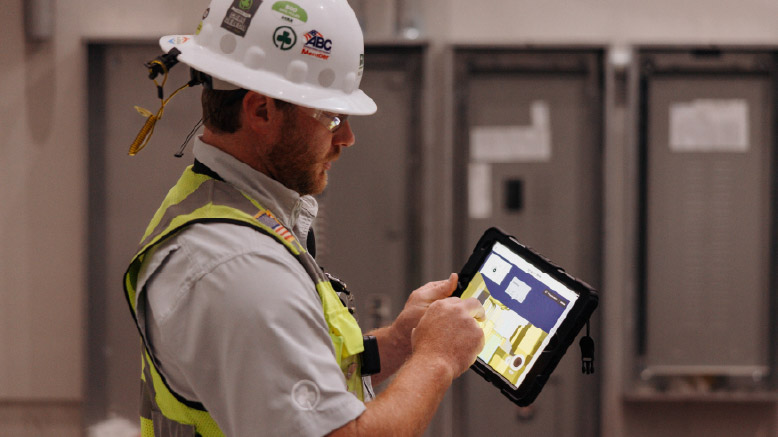— 6 min read
7 Types of Insurance Policy Every Subcontractor Needs
Last Updated Dec 20, 2024

Subcontractors who are searching for work need to have the right types of insurance coverage.
Subcontractor insurance protects subcontractors and general contractors (GCs) against potential financial risks and liability issues. Working on a construction project without insurance can expose subcontractors to expensive lawsuits and other problems.
This article will look at the most important insurance policies subcontractors should have and discuss whether subcontractors can qualify for work without insurance.
Table of contents
Subcontractor Insurance Policies
Subcontractor insurance refers to a collection of insurance policies that cover the various risks subcontractors can face. While subcontractor insurance isn’t legally required, GCs often require subcontractors to carry certain policies before hiring them.
Here are the types of insurance that subcontractors should consider purchasing.
1. General Liability Insurance
General liability insurance covers legal fees and settlement costs if a subcontractor is sued for an incident related to:
- Bodily injury
- Property damage
- Reputation harm
- Advertising injury (copyright infringement, libel and slander)
Coverage limits for general liability insurance are customizable, but common limits are $1 million per occurrence and $2 million aggregate. The per occurrence limit is the maximum amount paid for a single claim, and the aggregate limit is the maximum amount paid for all claims during the policy period.
2. Tools & Equipment Insurance
Tools and equipment insurance is a policy that pays to repair or replace damaged tools that contractors own or rent. It covers losses from:
- Theft
- Accidental damage
- Vandalism
A standard policy covers most of the tools that subcontractors use, like ladders, drills, saws and computers. Larger machinery, like bobcats and bulldozers, are usually covered at a higher limit. If something happens to a tool, the insurance policy will pay to repair or replace it.
Tools and equipment insurance is often sold as a floater on a general liability insurance policy. These two policies provide a solid base for a comprehensive insurance program.
3. Commercial Auto Insurance
Commercial auto insurance is a legal requirement for subcontractors who own a work vehicle or truck. It provides similar coverages to regular auto insurance, but personal car insurance policies exclude coverage for vehicles used for business purposes.
A commercial auto insurance policy for subcontractors is available with these coverages:
Bodily Injury Liability
If the subcontractor causes an accident and another driver gets injured, this policy will cover the other person’s medical expenses.
Property Damage Liability
This policy covers another person’s property damage if the subcontractor is responsible for an accident.
Collision Insurance
If the subcontractor causes an accident and their work vehicle gets damaged, collision insurance will cover the repairs.
Comprehensive Insurance
Comprehensive insurance covers damage to vehicles caused by non-collision incidents, like hail, falling objects, fires, floods and accidents with animals.
Medical Payments
If the subcontractor gets hurt in an accident, medical payments coverage will pay for some of their medical bills. It also covers medical treatment for passengers.
4. Workers' Compensation Insurance
In every state besides Texas, subcontractors with employees are legally required to have workers' compensation. This type of insurance covers an employee’s medical expenses and partial lost wages if they get sick or injured on the job. It also pays death benefits for fatal workplace accidents.
Workers' compensation rates are determined by various factors, including:
- Number of employees
- Employee classification
- Past claim history
- Industry
For example, an excavating contractor who performs demolition blasting will likely pay higher workers’ compensation premiums than a painting contractor.
5. Commercial Umbrella Insurance
Commercial umbrella insurance extends a subcontractor's coverage limits on their liability policies, like general liability and commercial auto insurance. It provides more financial and legal protection in the event of a large claim.
Business umbrella insurance is relatively inexpensive for most subcontractors. It’s often sold in $1 million increments, so the policy is easily customizable based on the type of projects a subcontractor works on.
6. Employment Practices Liability Insurance
Employment practices liability insurance (EPLI) covers a subcontractor’s legal fees if one of their employees files a lawsuit related to:
- Wrongful termination
- Harassment
- Discrimination
- Defamation
- Breach of employment contract
An EPLI policy covers every type of worker, including full-time and part-time employees, seasonal workers, temporary workers and independent contractors.
7. Cyber Insurance
Cyber insurance is important for subcontractors who use electronic recordkeeping, bookkeeping and accounting. It covers financial losses if business computers or other storage devices are attacked by malicious viruses or hackers. This type of policy will pay for:
- Notifying customers of a data breach
- Identity restoration for customers
- Recovering lost data
- Software fixes
Can you qualify for a contract without insurance?
Subcontractors may be able to find work without insurance, but it’s often more difficult to get hired due to the additional risks it imposes. Many GCs will only hire subcontractors that carry certain policies, like general liability insurance, commerical auto and workers’ compensation.
When subcontractors have their own insurance policies, it reduces the GC’s liability. If something goes wrong, and the subcontractor is responsible, the GC isn’t on the hook for a claim that's not their fault. Some states may require certain insurance policies, so it’s important for contractors to be aware of any reqiurements to maintain their credibility.
Even if subcontractor insurance isn’t a contractual requirement, it’s still a good thing to have. Subcontractor insurance provides financial protection for catastrophic claims that could otherwise bankrupt some businesses.
Are specialty contractors covered under the GC’s insurance policy?
Specialty contractors aren’t automatically covered under the GC’s insurance. Subcontractors are only covered if they are listed as additional insureds on the GC’s policies.
For example, if a subcontractor is required to drive the GC’s work truck as part of their job, the GC would need to add them as an insured driver on their commercial auto insurance policy. Otherwise, the subcontractor might not be covered if they caused an accident.
If a GC’s insurance policy does cover subcontractors, it often provides limited protection.
For example, the coverage might only apply to the liability portion of the contractor’s policy, and the coverage limit could be reduced for subcontractors. Plus, the GC’s policy won’t provide any coverage for the subcontractor's tools, equipment or vehicles.
Business insurance can also be difficult to navigate for subcontractors who work for multiple GCs. A subcontractor might have insurance under one GC, but no coverage under another. For subcontractors, having their own insurance policies provides consistent coverage for all the projects they work on.
What happens when a specialty contractor is uninsured?
When a specialty contractor is uninsured, they have no financial or legal protection against liability claims. If a subcontractor is held responsible for an injury or accident, and the other party sues for compensation, the GC’s insurance may not cover the subcontractor’s damage. The subcontractor would have to use its business assets to pay the damages.
Medical expenses, property damage and legal defense costs can add up quickly. For many subcontractors, the cost of a third-party liability claim could have serious financial consequences, or even lead to bankruptcy. Subcontractor insurance lessens the financial impact of claims so contractors can continue to run their businesses.
Courses about construction.
For construction.
Unlock your career potential with our free educational courses on Health & Safety, Data in Construction, and more.
Subcontractor insurance provides peace of mind.
Although there are instances when subcontractors may not be obligated to purchase an insurance policy, having the protection reduces financial risk covers potential liabilities that may be catastrophic enough to tank their business.
Having insurance coverage may help subcontractors secure more contracts and offer consistent protection across all projects. Ultimately, comprehensive insurance coverage is a strategic investment in the long-term success and sustainability of a subcontractor’s business.
Was this article helpful?
Thank you for your submission.
0%
0%
You voted that this article was . Was this a mistake? If so, change your vote here.
Scroll less, learn more about construction.
Subscribe to The Blueprint, Procore’s construction newsletter, to get content from industry experts delivered straight to your inbox.
By clicking this button, you agree to our Privacy Notice and Terms of Service.
Categories:
Tags:
Written by
Elizabeth Rivelli
12 articles
Elizabeth Rivelli is a freelance writer specializing in insurance and finance. Her writing has been featured in dozens of publications, including Investopedia, The Balance, Forbes, Bankrate, NextAdvisor, and Insurance.com. Elizabeth holds a degree in Communication Studies from Northeastern University. She lives in New England.
View profileReviewed by
Melody Bell
Melody Bell is Director of Underwriting at Procore. Previously, she spent 15 years as Director and Vice President for managing general agents in the U.S. and London, with a focus on construction GL, SDI and professional liability. Melody holds a bachelor's degree from the University of Southern California and a JD from USC Gould School of Law. She lives outside of San Bernadino, CA.
View profileExplore more helpful resources

3 Reasons for Construction Companies to Take The Digital Leap
It’s no secret that the digital infrastructure of our world has grown exponentially. Increases in data centers and fiber optic connections have opened up massive space for digital technologies systemized...

Construction Process Audits: A GC’s Key to Moving the Needle
From bidding to closeout, most general contractors will go through some established steps. However, there’s a difference between a loosely understood process and a process that’s been documented, refined and...

Tailoring Data Centers for a Future-Proof Digital Backbone
For decades, the essence of building was often defined by standard designs and repeatable processes. But now, in the burgeoning landscape of data center construction, the traditional approach to what...

From Concept to Reality: Prefabricating a Breakthrough in Construction
It’s been said countless times that a construction project can deliver on two — but rarely all three — of the following: high quality, speed and low cost. RNGD, a...
Free Tools
Calculators
Use our calculators to estimate the cost of construction materials for your next project.
Templates
Find a template to help you with your construction project tasks.
Material Price Tracker
Get the latest U.S. retail prices and view historical trends for common building materials.
Glossary
Explore key terms and phrases used in the industry.

